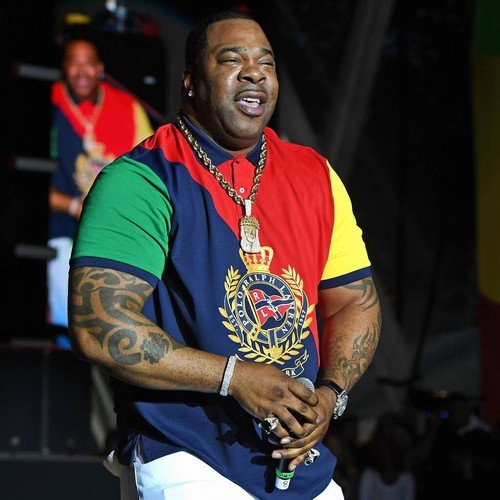Earlier this month, Billboard and many other publications were attacked online by BTS fans for reporting in a way that upset them that the group was taking a “hiatus.” “Billboard you really love making articles with such a non consistent [sic] details,” wrote one reader on Facebook. “BTS is not even on break as clarified by HYBE and BTS members.” Another comment: “Oh can you shut up about ‘hiatus’ stuff?” Some of this bile may have been inspired by BTS rapper RM, who wrote the day after the group said it was taking a break that “it feels bitter” to see “provocative keywords” like “hiatus.” His implication is that the word was used to boost online traffic.
The word “hiatus” came from subtitles written in English on a video message that BTS itself released on June 14. Soon after the video ran, a representative for BTS and HYBE – the group’s label and management company – announced that “BTS are not taking a hiatus.” Instead, “members will be focusing more on solo projects at this time.” The next day, HYBE stock fell almost 25%. Since then, the translation on the video “has been updated,” according to HYBE. It now says, “we’re taking a temporary break now.”
Left unclear: What’s the difference between a temporary break and a hiatus, which Merriam-Webster defines as “a break in or as if in a material object?” Not much, to judge by HYBE’s stock price.
As BTS fans prepare their Twitter insults, let me say that, as a music fan, I understand how sad it can be when an artist takes a break, and I respect BTS’ talent, hard work, and political advocacy). Same for its fans’ activism. BTS changed both the pop music business and, even more impressively, the worldwide perception of South Korea.
But none of this, and no amount of video editing, will change the fact that the group’s members clearly want some time for themselves, whatever you want to call it. They sound like they need a break. (Ironically, the demands of the constant-content machine that fueled their rise may have contributed to their exhaustion.) And the way the group’s fans attack the media evokes the worst aspects of current politics.
Fan frenzies are as old as Lisztomania, the 1840s fever for the Hungarian musician Franz Liszt, and media alarm about them always seems pretty silly in retrospect. But the online behavior of fan armies is becoming more akin to political movements, and few have defended the objects of their adoration as forcefully as BTS’ ARMY. The group’s fans wished death on James Corden over a joke, harassed reporter Juwon Park and, most recently, went after journalist E. Tammy Kim on Twitter for an almost entirely flattering story in The New Yorker, for which some asked the magazine to apologize. These attacks can get so intense that some of my Billboard colleagues suggested, seriously, that I get offline as soon as this column goes online. That kind of behavior is fairly new.
Like many articles about BTS, the one in The New Yorker focused on the remarkable devotion of the group’s fans – which has become a story in its own right. “When I asked fans, ‘Why are you so devoted to BTS?,’ Kim writes, “they would respond, nearly identically, ‘Because they do so much for us.’” Indeed, less of the online discussion about BTS involves favorite songs or albums than fandom itself – the group’s relationship with its fans, its fans relationship to it, even its fans relationships to one another. BTS is great because of its fans, who both bask in the group’s success and work hard to fuel it. Together with HYBE, BTS has perfected a kind of participatory ongoing narrative in which fans not only listen to albums but buy multiple copies, sometimes in an organized way, to make sure the group’s music tops the charts. It’s devotion as a business model.
The problem is, like any ongoing narrative, from professional wrestling to the Marvel Universe, the Story of BTS needs villains – only the relentlessly upbeat tone of K-pop, where everyone seems to get along, doesn’t seem to allow for any in the group. So as the Rise of BTS became the dominant storyline, the media was cast as the bad guys. Some journalists are accused of failing to acknowledge BTS’ popularity, while others are accused of misusing it for clickbait (think of those “provocative keywords”). BTS fans can be especially outraged by media coverage of the group, which they see as being more authentic than most but is usually portrayed by journalists as less so. Sometimes, this curdles into online harassment, which isn’t uncommon among some groups of fans – but it’s especially ironic coming from devotees of a group with such progressive politics.
There’s an ugliness in some of this behavior that evokes the worst of modern politics, where politicians complain about being quoted and their supporters attack journalists online. (Would BTS’ “temporary break” be considered an alternative fact?) At this point, most politicians on the far-right, and some on the far-left, have their own fan armies, who defend their idols from criticism both real and perceived. The idea, as in pop music, is to enjoy the success of others but also to help make it happen. Some of this has to do with the way social media flattens discussions into shouting matches that look like they can be won or lost. Politics, like pop music, is now about tribal loyalty to larger-than-life figures, more because of who they are and what they represent than the policies they favor or the music they record. And these tribes don’t want journalists to cover their idols – they want them to fawn over them, or else apologize for failing to do so.
Over the next few days, I may very well be attacked myself. But I hope I’m wrong, and that BTS fans will put their formidable energy to better use.
Additional Reporting by Jeyup S. Kwaak




